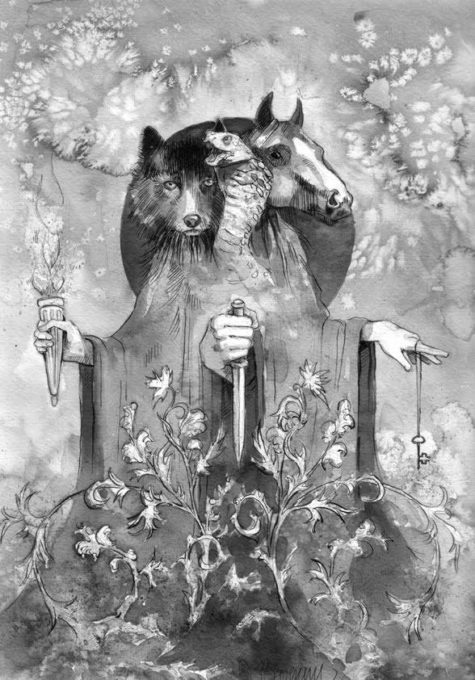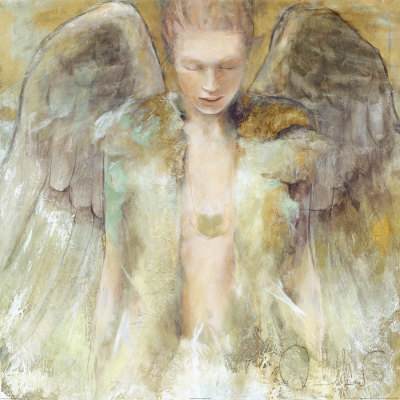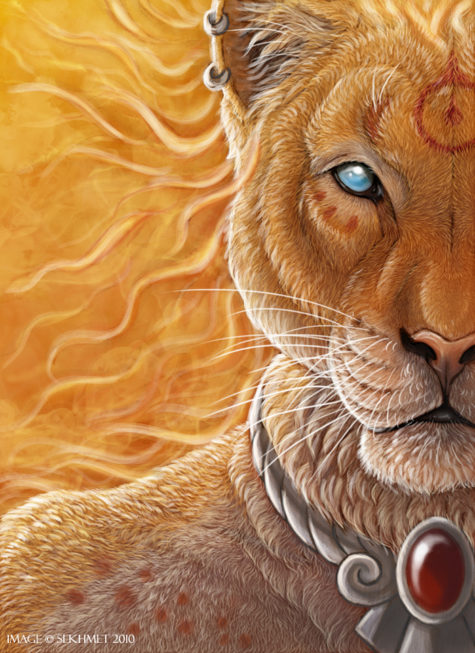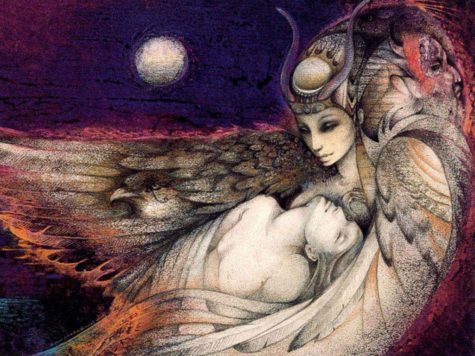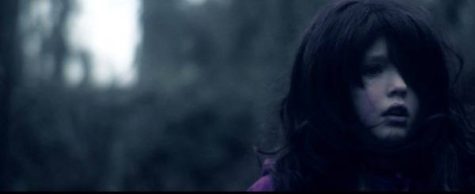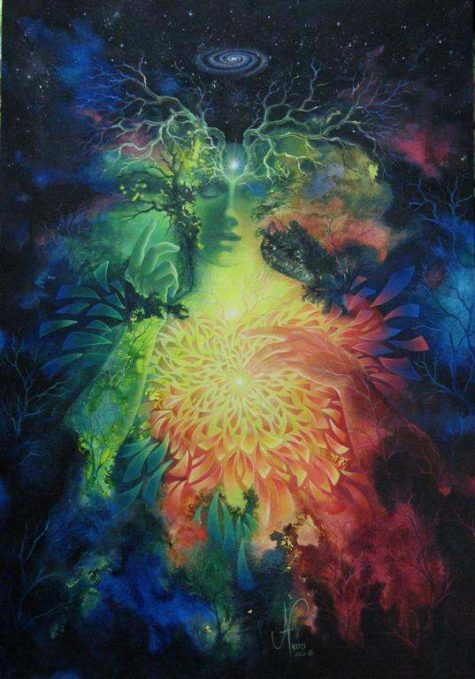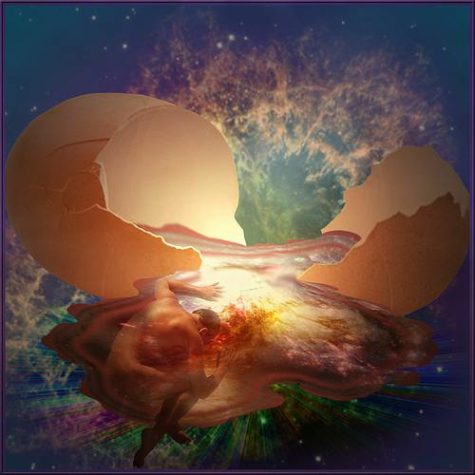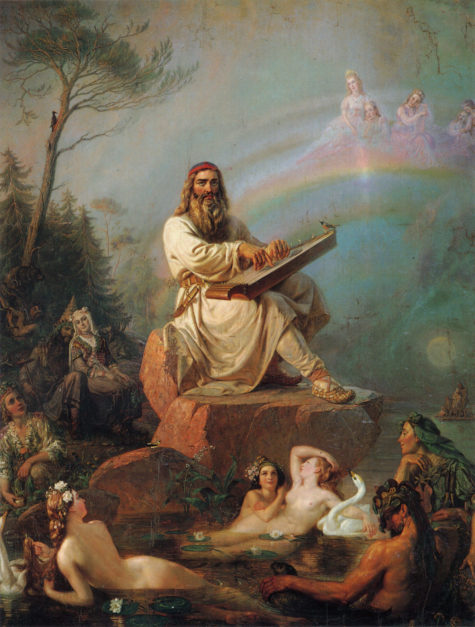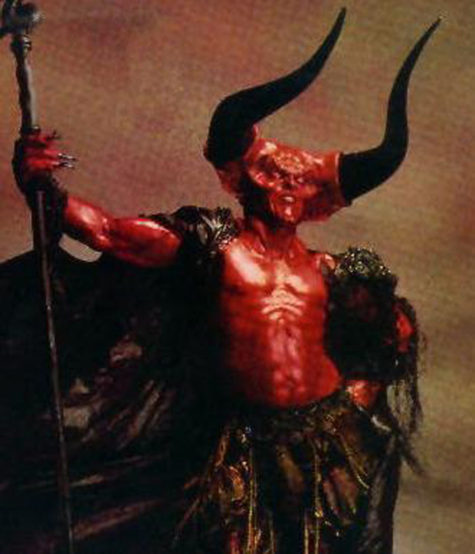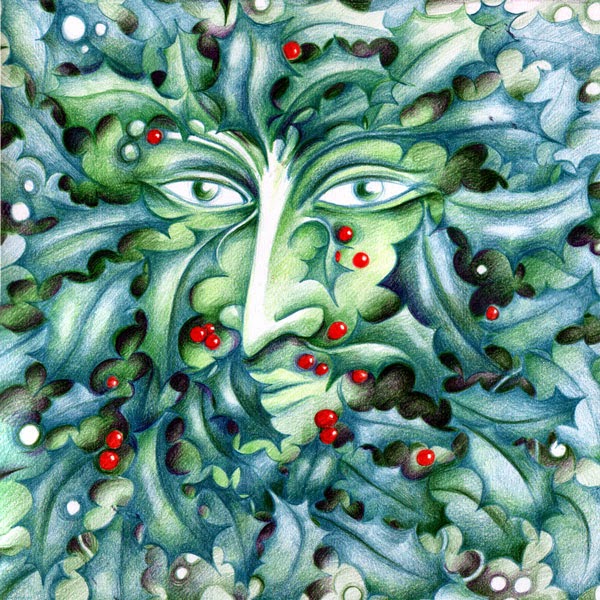Monthly Archives: February 2017
The Prayer To Selene For Any Spell
“Come to me, O Beloved Mistress, Three-faced
Selene; kindly hear my Sacred Chants;
Night’s Ornament, young, bringing Light to Mortals,
O Child of Morn who ride upon the Fierce Bulls,
O Queen who drive Your Car on Equal Course
With Helios, who with the Triple Forms
Of Triple Graces dance in Revel with
The Stars. You’re Justice and the Moira’s Threads:
Klotho and Lachesis and Atropos
Three-headed, You’re Persephone, Megaira,
Allekto, Many-Formed, who arm Your Hands
With Dreaded, Murky Lamps, who shake Your Locks
Of fearful Serpents on Your Brow, who sound
The Roar of Bulls out from Your Mouths, whose Womb
Is decked out with the Scales of Creeping Things,
With Pois’nous Rows of Serpents down the Back,
Bound down Your Backs with Horrifying Chains
Night-Crier, Bull-faced, loving Solitude,
Bull-headed, You have Eyes of Bulls, the Voice
Of Dogs; You hide Your Forms in Shanks of Lions,
Your Ankle is Wolf-shaped, Fierce Dogs are dear
To You, wherefore they call You Hekate,
Many-named, Mene, cleaving Air just like
Dart-shooter Artemis, Persephone,
Shooter of Deer, night shining, triple-sounding,
Triple-headed, triple-voiced Selene
Triple-pointed, triple-faced, triple-necked,
And Goddess of the Triple Ways, who hold
Untiring Flaming Fire in Triple Baskets,
And You who oft frequent the Triple Way
And rule the Triple Decades, unto me
Who’m calling You be gracious and with Kindness
Give Heed, You who protect the Spacious World
At night, before whom Daimons quake in Fear
And Gods Immortal tremble, Goddess who
Exalt Men, You of Many Names, who bear
Fair Offspring, Bull-eyed, Horned, Mother of Gods
And Men, and Nature, Mother of All Things,
For You frequent Olympos, and the broad
And boundless Chasm You traverse. Beginning
And End are You, and You Alone rule All.
For All Things are from You, and in You do
All Things, Eternal One, come to their End.
As Everlasting Band around Your Temples
You wear Great Kronos’ Chains, unbreakable
And unremovable, and You hold in
Your Hands a Golden Scepter. Letters ’round
Your Scepter Kronos wrote Himself and gave
To You to wear that All Things stay steadfast:
Subduer and subdued, Mankind’s Subduer,
And Force-subduer; Chaos, too, You rule.
Hail, Goddess, and attend Your Epithets,
I burn for You this Spice, O Child of Zeus,
Dart-shooter, Heav’nly One, Goddess of Harbors,
Who roam the Mountains, Goddess of Crossroads,
O Nether and Nocturnal, and Infernal,
Goddess of Dark, Quiet and Frightful One,
O You who have Your Meal amid the Graves,
Night, Darkness, Broad Chaos: Necessity
Hard to escape are You; You’re Moira and
Erinys, Torment, Justice and Destroyer,
And You keep Kerberos in Chains, with Scales
Of Serpents are You dark, O You with Hair
Of Serpents, Serpent-girded, who drink Blood,
Who bring Death and Destruction, and who feast
On Hearts, Flesh Eater, who devour Those Dead
Untimely, and You who make Grief resound
And spread Madness, come to my Sacrifices,
And now for me do You fulfill this Matter.”
From the Greek Magical Papyri
Guardian Angel Invocation
“Be thou a bright flame before me,
Be thou a guiding star above me,
Be thou a smooth path below me,
Today, tonight, and forever.”
Sekhmet – Lady of Mysteries
I am the Dark Lady of the Egyptian Night, the goddess of Mystery
My signs are the lion, who walks proud and free, without fear
and the viper, who poisons those who displease it
I am offered meat and milk, for these two forms
And also blue lilies, for the dark skies of magic
I walk in the desert at night, and none know me
I stay in caves, and groups of rocks, and old trees
I know the pathways through the darkness on earth,
and I know the pathways beyond
Few have known my secrets, and they have been forgotten
with the moving of sands and of armies
But I still live, and hold the keys, and the passwords
To the worlds that appear after death
As the lion-goddess, I prey upon the unworthy
I am the wrath of the desert to the dishonest
I am the wrath of many gods, for I do not hesitate to act
And I have been involved in vengeance
I deserve to be feared
For my anger has gone forth upon the tomb-robbers and the killers of children
But for those who fear me, and speak with respect
I give knowledge of the many worlds of death
I am the Dark Guide, the secret way-finder, the one who leads through mazes
Some seek the worlds of the pharoahs,
those proud men bloated with their own importance
They now live in kingdoms which are echoes of their own worldly power
And they never change or grow
They paid their magicians well to make these worlds
As they paid their architects and sculptors to make monuments in the sand
They earned their money, and made afterlives of waters and date palms
But they stay there forever, without knowledge or love
Remembering their days of power
These are not worlds to visit
Where should one go in the after life?
This is the question
It depends on your ideals and your worthiness
One may be initiated during life, or after death to find the way
My worlds are those of dark beauty, the worlds of magicians, and explorers of the night
Not angry ghost and monsters, not the hell worlds
But places of clean pure air, filled with sorcery and wonder
Where one can feel the power and move it at will
Where the night air is your sculpture, and the stars your paint
Where each person can make a world of his own
Or, one may go to the worlds of Ra, the shining one
Whose rays are full of secret worlds
Ra whose boat travels the skies
Whose explosive power fills the skies with fireworks
Who shows the range of what already exists
Or we have the worlds of Isis
Lover, mourner, queen
It is Isis who both heals and steals, who is both truth and falsehood
Isis is the drama queen who plays the faithful wife
Yet takes power whenever she can get it
She is no great goddess who rules the sky
She is the trophy wife, desired by men and manipulating them
She can heal if she wishes but she may also lie about it
Osiris has the green worlds, and the death worlds
He is an ocean who absorbs all souls
To become Osiris is to lose your soul
I am the dark goddess who shows the way
Who strides like a lion in the darkness.
~Poetry from Crystal Rivers
Isis Heed My Call
O Isis, heed my call this night,
If it is time for my spirit to flee this shell,
then send those who will
guide me to your light!
Grant me rest O Beloved Mother,
for Your child is wracked with pain.
If my time has yet to come,
help me Great One to heal from within.
O Isis, heed my call this night!
Source: Liberated Thinking
I Am Aset
I am Aset, Daughter of Earth and Sky
I am the Mother of Power
I am the Sister of Authority
I am the Wife of Death
I am the Lady of Life
I am the Adversary of the Enemy of my People
I know the Secret and Powerful Name
I am the Lady of all Magicks
I am Watcher of the Limit, I test it, I break it
I bring Life out of Death
My wings cause the Breath of Life
I am the Wife and Mother of Sorrows
I am the Mighty Throne of Power
I am Aset, Queen of Heaven
I endure throughout the ages
My peoples have not forgotten Me.
From: Isis Moon Temple
The Legend of Pancake Marion
There’s been a lot of talk of late about Pancake Marion, and the whole “Shrove Tuesday” phenomenon. But just who is she? And why did she do the horrible things that she did? Historian Marcus Ploughmans looks back at the history of one of England’s darkest secrets.
“Pancake Marion, Pancake Marion
Now’s the time to fry them
Pancake Marion, Pancake Marion
Now’s the time to fry
Don’t you dare to drop them
On the table plop them
Tuesday’s day is pancake day
We dance our cares away”
The ever-popular children’s nursery rhyme is now only ever really associated with cooking pancakes. But there was once a time when it was sung to remind children of the dangers of going into the darkness of Marionwood, Herefordshire.
The Raven-Barrow Family Portrait
In 1854, Jonathon Raven-Barrow (a wealthy industrialist from Westminster, London) lost his entire fortune to bad investments made in overseas property. Jonathon, his wife and their daughter, Marion, were homeless and destitute. They were forced to live in makeshift accommodation in the woodlands of Hereford, surviving by eating scraps, scavenged from the dustbins of the local townsfolk.
But, unknown to the Raven-Barrows, the villagers had grown tired of the rogue family’s presence. They saw the family as vermin. The woods were once a play area for children, but had become a no-go area since the Raven-Barrows had taken over. The villagers conspired to trap the family, and, on the night of the 14th of February 1857, caught them deep within the woods.
One by one, they were boiled alive in a vat of rancid eggs and lard…ingredients that were consistently stolen. As Marion was being executed she managed to escape. The villagers assumed that her fierce wounds would finish her off. But they were wrong. She lived. Albeit deformed and unhinged. Her mind twisted by the sight of the murder of her parents.
She fed off wild animals…to begin with! When the animals ran out…she turned to the children of the village. And anyone else who was foolish enough to go into the woods. All were captured…tortured and eaten alive, covered in boiling batter. They called her Pancake Marion.
Armies of men would march into the woods, all carrying weapons…but none would return. In a five year period she claimed over 200 victims. Eventually, the woods were burned to the ground. It seemed the only way to end her reign of terror. And the name of Pancake Marion became a thing of folklore.
Source: Wikipedia
Incantation Against Sickness
O malady, disappear into the heavens;
pain, rise up to the clouds;
inflamed vapour, fly into the air,
in order that the wind may take the away,
that the tempest may chase thee to distant regions,
where neither sun nor moon give their light,
where the warm wind does not inflame the flesh.
~from the Kalevala
The Birth of Vainamoinen
From the Kalevala, here is the story of the creation of the world, Ilmatar Daughter of Nature, and the birth of her son, Vainamoinen.
Lonely come the nights upon us,
Lonely dawn the brightening days;
Lonely born was Vainamoinen,
All alone, the poet immortal,
From the beautiful who bore him,
From his mother, Ilmatar –
She, the virgin of the air,
Beautiful maiden. Nature’s child,
Long maintained in holiness
Her eternal maidenhood
In the far-horizoned heavens,
Level meadows of the air.
But in time she wearied of it,
Was estranged from this odd living,
Always being by herself,
Ever living as a virgin
In those far-horizoned heavens,
In those vast and empty spaces.
So at length she then descended
To the seawaves down below,
To the open clear sea surface
Out upon the open ocean.
Suddenly a storm wind blew,
Out of the east an angry blast
Blew the water to a foam
Heaving up the rollers high.
By the wind the maid was rocked,
On a wave the maid was driven
Round about the blue sea surface
By the whirling whitecaps lifted
Where her womb the wind awakened
And the sea-foam impregnated.
Thus a full womb now she carried,
Long she bore her burdened belly,
Seven hundred years she bore it
For nine lifetimes of a man,
Yet the borning was unborn,
Still the fetus undelivered.
As the mother of the water
Aimlessly the virgin drifted:
She swam eastward, she swam westward,
She swam south and northwestward,
Swimming round the whole horizon
In the anguish of her birth pangs,
In her belly’s bursting pains.
Yet the borning was unborn,
Still the fetus undelivered.
Then she fell to weeping softly,
Said a word and spoke out thus:
“Woe is me, the water wanderer,
Luckless girl, misfortune’s child!
Now already I’m in trouble,
Shelterless beneath the sky,
Ever rocking on the seawaves
To be cradled by the wind,
To be driven by the billows
On these far-extending waters,
Endlessly repeated billows.
“Better had it been for me
To have stayed the airy virgin
Than to be as I am now
Drifting as the water-mother.
Its too cold for me to stay here,
Painful to be drifting here,
Wallowing in this watery waste.
“0 thou Ukko, lord of all,
Hear me, thou the all-sustainer:
Come, 0 come where thou art needed;
Come, 0 come where thou art called!
Loose the maiden from her misery
And the woman from her womb-ache;
Come thou quickly, soon arriving
Where thy help is sooner needed.”
Then a bit of time passed over
Like a tiny rash of rain,
When a scaup, the honest bird,
Came on hovering here and there
Searching for a nesting place,
For a spot to build her home on.
She flew eastward, she flew westward,
Flew to northwest and to southward
But she cannot find a spot
Even in the worst of places
Where to build her needful nest,
Where to take up her abode.
Hovering, fluttering back and forth
Thus she thought and pondered it:
“Must I make my home on wind,
Build my hut upon the billows
Where the wind can blow it over
Or a wave can wash away?”
So the mother of the water,
Water mother, airy maiden,
Raised her knee above the surface
And her shoulder from the wave
As a refuge for the scaup
And a welcome nesting place.
Then that scaup, the lovely bird,
Fluttering round and hovering over
Spied the water-mother’s knee
Lifted from the sea’s blue surface;
Took it for a grassy tussock
Or a tuft of new-grown turf.
Flies about, flitting here and there,
Settles on the lifted kneecap.
It is there she builds her nest,
There she laid her golden eggs –
Six were the golden eggs she laid,
But the seventh was of iron.
She began to hatch the eggs there,
Heating up the lifted kneecap;
Brooded one day, brooded two days,
Even on the third day brooding.
Then the mother of the water,
Little mother, airy maiden,
Felt the rising heat upon her,
Felt as if her skin were scorching,
Thought her kneecap was on fire,
That her very veins were melting.
All at once she jerked her knee,
Agitating every member,
And the eggs rolled in the water
To the tumbling of the tides;
Into bits the eggs were broken,
Shattered into crumbs and pieces.
But the eggs and pieces were not
Mixed up with the mud and water
For at once the crumbs grew comely
And the pieces beautiful.
One egg’s lower half transformed
And became the earth below,
And its upper half transmuted
And became the sky above;
From the yolk the sun was made,
Light of day to shine upon us;
From the white the moon was formed,
Light of night to gleam above us;
All the colored brighter bits
Rose to be the stars of heaven
And the darker crumbs changed into
Clouds and cloudlets in the sky.
Quickly now the time goes forward
As the hurrying years pass by
While the newborn sun is shining
And the newborn moon is gleaming.
Still the mother goes on swimming,
Water mother, airy maiden,
Swimming on those peaceful waters
Over misty seawaves wandering.
Before her flowed the liquid deep,
Behind her shone the empty heaven.
In the ninth year, tenth of summers,
Raised her head out of the sea,
Lifts her crown above the water;
Set to work on her creations,
Hastens on her handiwork,
Out upon the clear sea surface,
Out upon the open ocean.
Where she gave her hand a turn
There she put the capes in order;
Where her foot struck bottom, there
Grottoes for the fish were formed;
Where the bubbles reached the surface
There the deeps were made still deeper.
Where her side had scraped the land
There the level shores appeared;
Where she turned her foot to landward
There the salmon grounds were formed,
And wherever her head touched land
There the broad bays opened out.
Swimming farther out from shore
She halted on the smooth sea surface
Where she made the little islands.
Then she raised the hidden reefs
Where the grounded ships would founder,
Many a seaman lose his life.
Now the islands were in order
And the small isles of the sea;
Pillars for the sky were planted,
Lands and continents created;
On the rocks the writs were written”
And the signs drawn on the cliffs.
Yet Vainamoinen is unborn,
Poet eternal not emerged.
Old reliable Vainamoinen
Traveled in his mother’s womb,
Traveled there for thirty summers
And as many winters too
On the ocean now so peaceful
In that misty world of water.
He is pondering, he is thinking,
How to live or how survive
In this dismal hiding place,
In this narrowest of dwellings
Where he never saw the moon,
Never got a glimpse of sunlight.
So he speaks out in these words,
Says it in these sentences:
“Free me. Moon, and Sun, release me!
Thou, Great Bear, do ever guide me,
Lead a man here through strange doors,
Through these unfamiliar gates.
Release me from this narrow nest,
From this shut-in dwelling place!
Guide the traveler to the land,
Child of mankind to the open
To behold the moon in heaven
And to wonder at the daylight,
Get to know the Great Bear’s grandeur
Or just to stare up at the stars!”
Since the moon did not arrive
Nor the sun come to release him,
Alienated from his birth time,
Impatient of this dull existence,
He pushed against his prison lock
Pressing with his nameless finger,
Slid the bony bolt aside,
With his left toe opened it;
Scrabbling with his nails he came
Crawling through the exit door.
Headlong in the sea he tumbled
With a hand-turn in the waves.
There the man was left alone
In the rough care of the billows.
There he floated for five years,
Six, seven, even eight years,
Stopped at last upon the surface
There beside a nameless headland,
On a treeless continent.
Struggling up with knee and elbow
He stood up to see the world:
To behold the moon in heaven
And to wonder at the daylight,
Get to know the Great Bear’s grandeur
Or just to stare up at the stars.
That was the birth of Vainamoinen.
Such the daring poets descent
From the beautiful who bore him,
From his mother, Ilmatar.
Wainamoinen’s Harp Songs
The Kalevala recounts a battle of wits between three wizard brothers and the witch goddess, Louhi. It is a treasure trove of ancient shamanistic practices and spells. Here’s a reading:
Wainamoinen’s Harp Songs
Then the singer of Wainola
Took the harp of his creation,
Quick adjusting, sweetly tuning,
Deftly plied his skillful fingers
To the strings that he had fashioned.
Now was gladness rolled on gladness,
And the harmony of pleasure
Echoed from the hills and mountains:
Added singing to his playing,
Out of joy did joy come welling,
Now resounded marvelous music,
All of Northland stopped and listened.
Every creature in the forest,
All the beasts that haunt the woodlands,
On their nimble feet came bounding,
Came to listen to his playing,
Came to hear his songs of joyance.
Leaped the squirrels from the branches,
Merrily from birch to aspen;
Climbed the ermines on the fences,
O’er the plains the elk-deer bounded,
And the lynxes purred with pleasure;
Wolves awoke in far-off swamp-lands,
Bounded o’er the marsh and heather,
And the bear his den deserted,
Left his lair within the pine-wood,
Settled by a fence to listen,
Leaned against the listening gate-posts,
But the gate-posts yield beneath him;
Now he climbs the fir-tree branches
That he may enjoy and wonder,
Climbs and listens to the music
Of the harp of Wainamoinen.
~RUNE XLI.
The epic poem, Kalevala, is celebrated by the Finns this day (February 28) with parades and readings from the poem. The Kalevala is a 19th century work of epic poetry compiled by Elias Lönnrot from Finnish and Karelian oral folklore and mythology. The above translation is by John Martin Crawford,
Old Stories About the Devil
When the devil appeared to Cuvier, the great man looked at him nonchalantly and asked curtly: “What do you wish of me?” “I’ve come to eat you !” said the devil. But the great anatomist’s shrewd eye had already examined him. “Horns and hoofs !” he retorted, “granivorous. You can’t do it!” Whereupon, outfaced by science, Satan departed.
Plinius Secundus remembers a house at Athens which Athenodorus, the philosopher, hired, and which no man durst inhabit, for fear of the haunting devils. Hesperius, the tribune’s house, at Zubeda, near the city of Hippos, was also thus haunted; and he was so much vexed with these demons and ghosts that he could not rest.
Vasari, the Italian painter and biographer (d. 1574), tells the following strange tale of Spinello of Arezzo. When this artist had painted, in his famous fresco of the fall of the rebellious angels, the devil as a hideous demon and with seven heads about his body, the fiend came to him in the very bodily form he had conceived him, and asked the artist where he had seen him so, and why he had portrayed him in such a manner and put such a shame upon him? When Spinello came out of the vision, he was in a state of terror, and falling into a melancholy, soon died.
A mythical personage who originated in German folklore, was Friar Rusk. He was a fiendish looking creature who was really a devil, and kept monks and friars from leading a religious life. He was probably at one time a good natured imp like Robin Goodfellow, but under the influence of Christian superstition, he became the typical emissary from Satan who played tricks among men calculated to set them by the ears, and who sought by various devices, always amusing, to fit them for residence in his master’s dominions. (Tuckerman, “History of Prose Fiction.”)
Freischiitz, the free shooter, is a name given to a legendary huntsman who, by entering into a compact with the devil, procures balls six of which infallibly hit, however great the distance, while the seventh, or according to some of the versions, one of the seven, belongs to the devil, who directs it at his pleasure. Legends of this nature were rife among the troopers of Germany in the fourteenth and fifteenth centuries, and during the Thirty Years’ War. The story first appeared in Apel’s “Ghost Book,” and was made known to all civilized countries by Weber’s opera in 1821. Continue reading
James Cheney: Invocation To The Dark Mother
Daniel: Prayer Before The Final Battle
blessed obyno: Queen of Ghosts
blessed obyno: Queen of Ghosts
Caerlion Arthur: The Great, Bloody and Bruised Veil of the World
